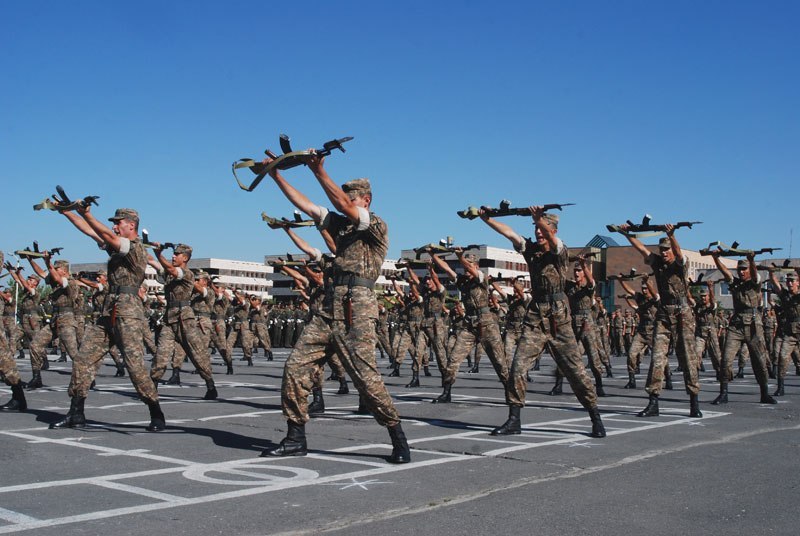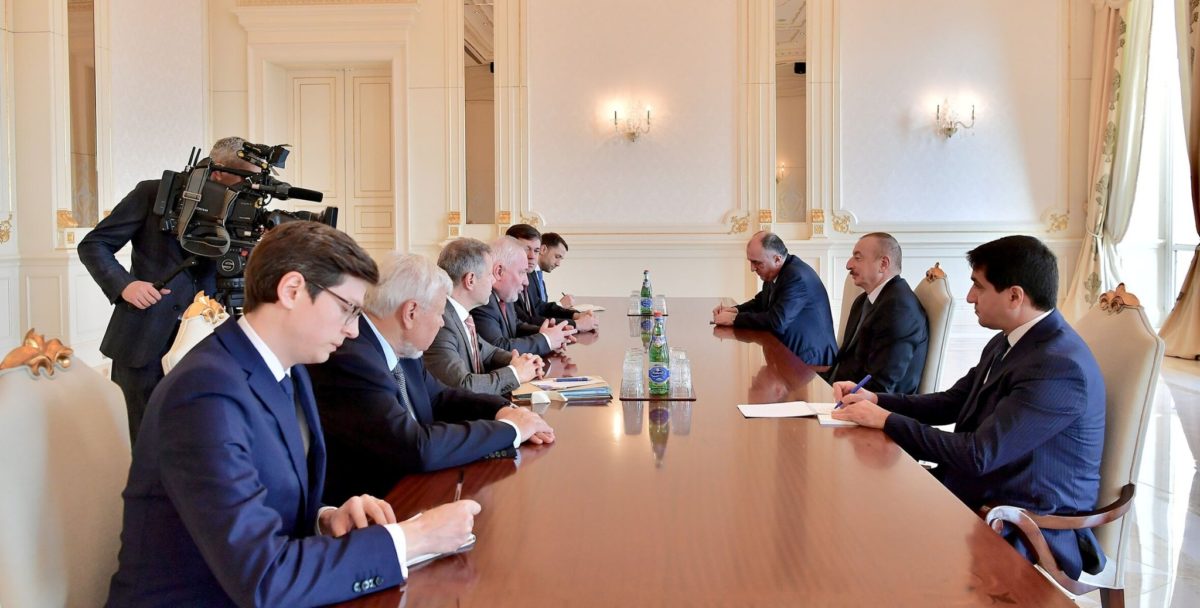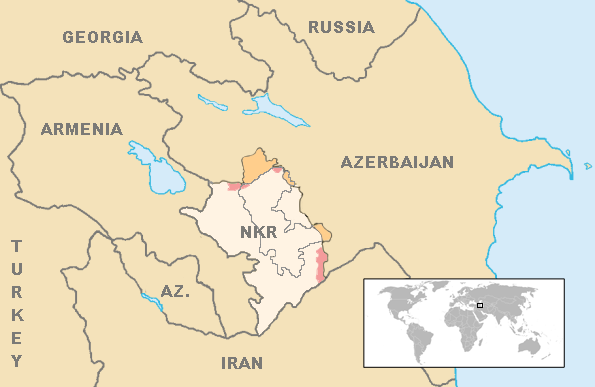 Courtesy: Khustup via Wikimedia Commons
Courtesy: Khustup via Wikimedia Commons
Armenia, Azerbaijan, and the World: How a Territory Dispute in the Caucasus Implicates International Security
Tensions between Armenia and Azerbaijan reached a new height this week as violence consumed the Nagorno-Karabakh region resulting in casualties not seen since 2016. The conflict has long tainted post-Soviet geopolitics, and this week’s clashes have reintroduced the security concerns that threaten to destabilize the region and implicate broad security partnerships.
A Decades-Long Dispute
The dispute between the border states is one which challenges cooperation and diplomacy in the international system and calls into question the legitimacy of international recognition. The mountainous region of Nagorno-Karabakh is internationally recognized as a territory of Azerbaijan but is administered and secured by a government majority of separatist ethnic Armenians.
Although Armenians inhabited Nagorno-Karabakh as an ethnic-majority for decades, the Soviets gave control of the region to Azerbaijani authorities. As the Soviet Union collapsed, Armenians in the region voted to formally become part of the Armenian state. Preceding the official dissolution of the Soviet Union in 1991 and continuing through the ensuing years of geopolitical re-structuring in post-Soviet space, Armenia and Azerbaijan fought a full-scale war over the disputed region which resulted in the displacement of nearly one million people. Armenian separatists then drove out Azerbaijani troops in the 1990’s, and with their military mandate became the administers of the region.
Implications of International Security
The implications of the conflict on international security cannot be understated. The dispute is primed for broad geopolitical participation due to its unique position for delivering energy, and the defensive alliances that support each state. Turkey and Russia both seek significant postures in the region, and the involvement of Iran, the United States, and NATO forces is likely should Turkey overextend its reach. That the cause of this week’s conflict is unclear further weakens diplomacy: with no legitimate aggressor, structural alliances and zealous rhetoric will overpower international law and institutions in the conflict’s resolve, which may result in a multi-state stand-off.
Russia, the major powerbroker in the region, has already called for a ceasefire. Russian President Vladimir Putin urged Armenian Prime Minister Nikol Pashinyan that “it is important now to take all necessary efforts to prevent a military escalation of the confrontation, and most importantly, to stop military operations.” While Russia has cooperated with both states and expresses caution in its approach to the region, Russia’s ties with Armenia includes military and economic cooperation in The Collective Security Treaty Organization (CSTO) and the Eurasian Economic Union (EEU); Russia also retains a military base in Armenia, and likely would not tolerate Turkish influence in post-Soviet regions.
Turkey, on the other hand, maintains strong support for Azerbaijan. While Russia urged a ceasefire this week, Turkey simply declared its support for Azerbaijan. Armenia, long at odds with Turkey, accuses Turkey of providing direct military support for Azerbaijan.
Russian-Turkish relations have improved considerably in recent years, with increased cooperation in trade (including arms), nuclear energy, and tourism; in Syria, Putin has even invited Turkey to participate in negotiations in an attempt to pull a NATO ally to his side to strengthen his own legitimacy in the region. Still, Russia and Turkey remain tensely divided on cooperation in the Middle East, as each prefers a different geopolitical outcome. On top of competing interests in the Middle East, Russia and Turkey have been involved in military incidents in Syria, which did much to deteriorate the increasingly positive relations between the states. These tensions may very well carry over in a post-Soviet region where Russia has no intention of losing influence. Optimistically, it’s also possible that the increased ties between the countries, such as through the sale of the S-400 system, could make negotiating a cease fire easier.
Failure of an Institution: the OSCE Minsk Group
Co-chaired by Russia, the United States, and France, the OSCE Minsk Group spearheads efforts to find a peaceful resolution to the Nagorno-Karabakh conflict. While the organization has done much to facilitate peace, recent clashes suggest the institution may be losing its influence. Moreover, Russia’s tendency to use energy security as a bargaining chip may put the Co-Chairs at odds with one another. And while the group formed as a result of the OSCE Budapest Summit in 1994, the exclusion of some regional powers of today – including Iran – and the resurgence of Russian influence since the 1990’s, may threaten its legitimacy in resolving today’s conflict.

(President of Azerbaijan, Ilham Aliyev, meeting with the OSCE Minsk Group co-chairs, 2019. Courtesy: Republic of Azerbaijan.)
Why the Conflict Matters to the U.S.
The U.S. joined international calls for the two states to end their days-long clashes over the disputed territory. For the United States, stability in the Caucuses is essential for the security of European energy. The Ganja Gap, a narrow trade corridor in Azerbaijan, is the only route through which energy and trade from Asia can flow overland without going through Russia or Iran. In just the 60-mile-wide corridor, the Ganja Gap includes three major oil and gas pipelines. Therefore, consistent with the United States’ interest in reducing European dependence on Russian oil and gas, a secure and interested Azerbaijan is vital for the movement of energy from Asia to Europe.
Although the United States perceives its key interests in Azerbaijan, and Russia in Armenia, both countries maintain relatively positive relations with each state. Thus, it is well within Russian and American reach to successfully broker peace in Nagorno-Karabakh for at least the short-term. As Co-Chairs of the OSCE Minsk Group, the United States and Russia should consider promoting Turkey from a permanent member to a co-chair to leverage its military support for Azerbaijan. The new Minsk group could then facilitate dialogue on land, a commitment to non-violent diplomacy, and a comprehensive plan to reopen borders. However, should the powerbrokers fail in their diplomatic approaches, a full-scale war on the edge of Europe promises a multi-state conflict.







